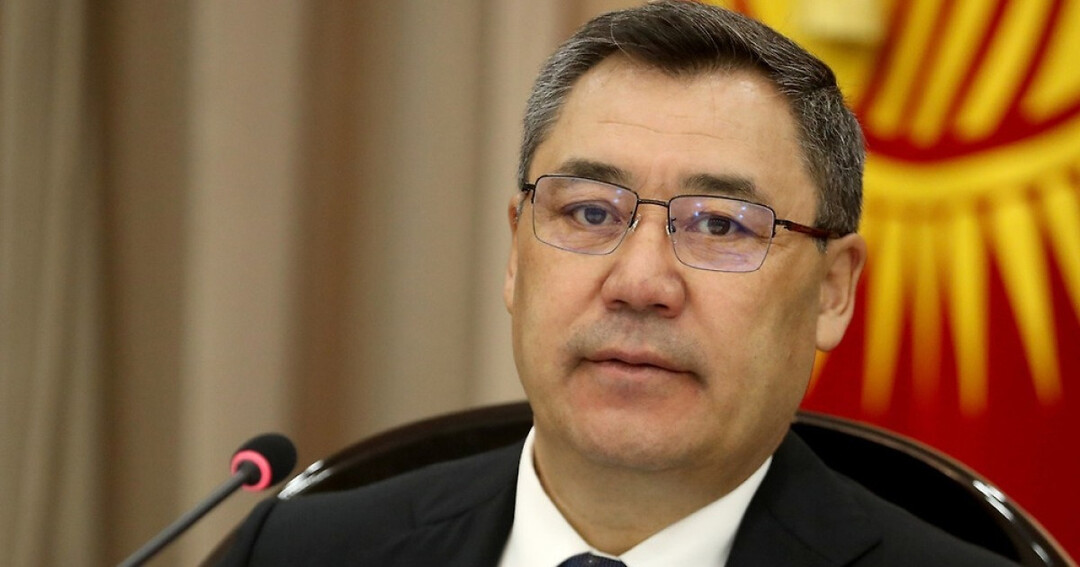
BISHKEK, Kyrgyzstan – In a significant move that signals a further consolidation of state power, Kyrgyzstan’s President Sadyr Japarov has enacted new legislation to drastically increase governmental control over the nation’s internet space. The sweeping measures include a nationwide ban on online pornography and, more critically, the establishment of a one-year state monopoly over all international internet traffic, raising alarm among digital rights advocates, independent media, and observers of Central Asian politics.
President Japarov, who assumed office in 2021 following a period of political unrest, signed the bill prohibiting access to pornographic content on July 29. The presidential administration justified the ban by stating it aims to "protect moral and ethical values" within Kyrgyzstan, a country where the majority of the population adheres to Islam. Under the new law, internet service providers (ISPs) operating within the Kyrgyz Republic are now legally obligated to block access to designated pornographic websites. Non-compliance will reportedly result in substantial fines, with the Ministry of Culture tasked with identifying and mandating the blocking of such online material.
However, the most far-reaching change comes with a separate decree, also signed by Japarov on July 29, which will grant the state-owned telecommunications company, Elcat, an exclusive monopoly on the provision and routing of international internet traffic for a period of one year. This unprecedented measure is slated to come into effect on August 15, 2025, and will remain active until August 14, 2026. According to the decree, all existing private internet service providers that currently manage international data streams will be compelled to transfer their contracts and agreements to Elcat within two months. To bolster Elcat’s operational capacity, the state will also transfer 100 percent of the shares of Aknet, another prominent Kyrgyz communications provider that reportedly supplies internet access to a significant portion – 90 percent – of the nation's universities, directly to Elcat.
Official statements from the Japarov administration claim these stringent new controls are designed to "create better conditions for digital transformation," improve the management of the country's digital and telecommunications infrastructure, streamline internet traffic, and enhance overall connection quality. Yet, critics and analysts inside and outside Kyrgyzstan view these justifications with skepticism, arguing they represent a thinly veiled attempt to assert greater governmental oversight and potentially restrict access to information.
This latest development is consistent with a broader pattern of increasing authoritarianism observed under President Japarov's leadership. Since his ascent to power amidst the tumultuous events of October 2020, which saw large-scale protests over alleged parliamentary election fraud leading to the resignation of then-President Sooronbay Jeenbekov, Japarov's government has steadily tightened its grip on various sectors, most notably on independent media and political opposition.
Kyrgyzstan, once celebrated as the most democratic nation in Central Asia, has witnessed a gradual erosion of its liberal freedoms. The International Telecommunication Union (ITU), a specialized agency of the United Nations, has noted that state monopolies over internet services are a common feature of authoritarian regimes. Political analyst Emil Juraev, based in the capital Bishkek, articulated concerns that "this decision only adds to the growing role of the country at the expense of market freedom in Kyrgyzstan," highlighting the potential negative impact on the nation's economic landscape and innovation.
Indeed, the internet monopoly is not an isolated incident but rather the latest in a series of legislative actions aimed at controlling the information space. On June 25, 2025, just weeks prior to the internet monopoly decree, the Kyrgyz parliament adopted a controversial new mass media law. This law imposes mandatory registration requirements on all media outlets, including online publications, and limits foreign ownership in media companies to a mere 35 percent. Crucially, it grants governmental authorities extensive powers to deny media outlets registration, impede their operations, and even shut them down without requiring judicial oversight.
International human rights organizations have swiftly condemned the new media law. Human Rights Watch, among others, has expressed profound concerns, asserting that it "dismantles crucial oversight mechanisms against torture and undermines media independence," and directly violates Kyrgyzstan's international human rights obligations. Reports from Reporters Without Borders indicate a precipitous decline in Kyrgyzstan's press freedom ranking, dropping from 120th globally in 2024 to 144th in 2025, underscoring the deteriorating media environment.
Earlier legislative efforts also paved the way for increased online censorship. In August 2021, the "Law on Protection from False Information" was enacted, granting the Ministry of Culture the power to demand the removal of online content within 24 hours and to block websites that fail to comply. This law was notably invoked in October 2022 to block the website of Azattyk Media, the Kyrgyz service of Radio Free Europe/Radio Liberty, over its coverage of border conflicts.
Many observers are now suggesting that these intensified controls over the internet and media are strategic maneuvers by the Japarov administration in anticipation of upcoming national elections. Parliamentary elections are scheduled for November 2026, followed by a presidential election in January 2027. President Japarov has publicly signaled his intention to seek re-election, and his political allies are widely understood to hold a dominant position within the unicameral parliament. By consolidating control over information flows, the government may seek to minimize dissent, suppress critical voices, and shape public discourse in the lead-up to these crucial electoral contests.
The sweeping nature of these new laws, particularly the state's monopolization of international internet access, signals a dramatic shift in Kyrgyzstan's trajectory. What was once seen as a beacon of relative openness in a region dominated by more autocratic regimes now appears to be following a path of increasingly restrictive governance, raising serious questions about the future of digital freedom, free expression, and political pluralism in the Central Asian nation. The international community will undoubtedly be watching closely to see how these measures impact the lives of ordinary Kyrgyz citizens and the country's democratic institutions.
[Copyright (c) Global Economic Times. All Rights Reserved.]




























